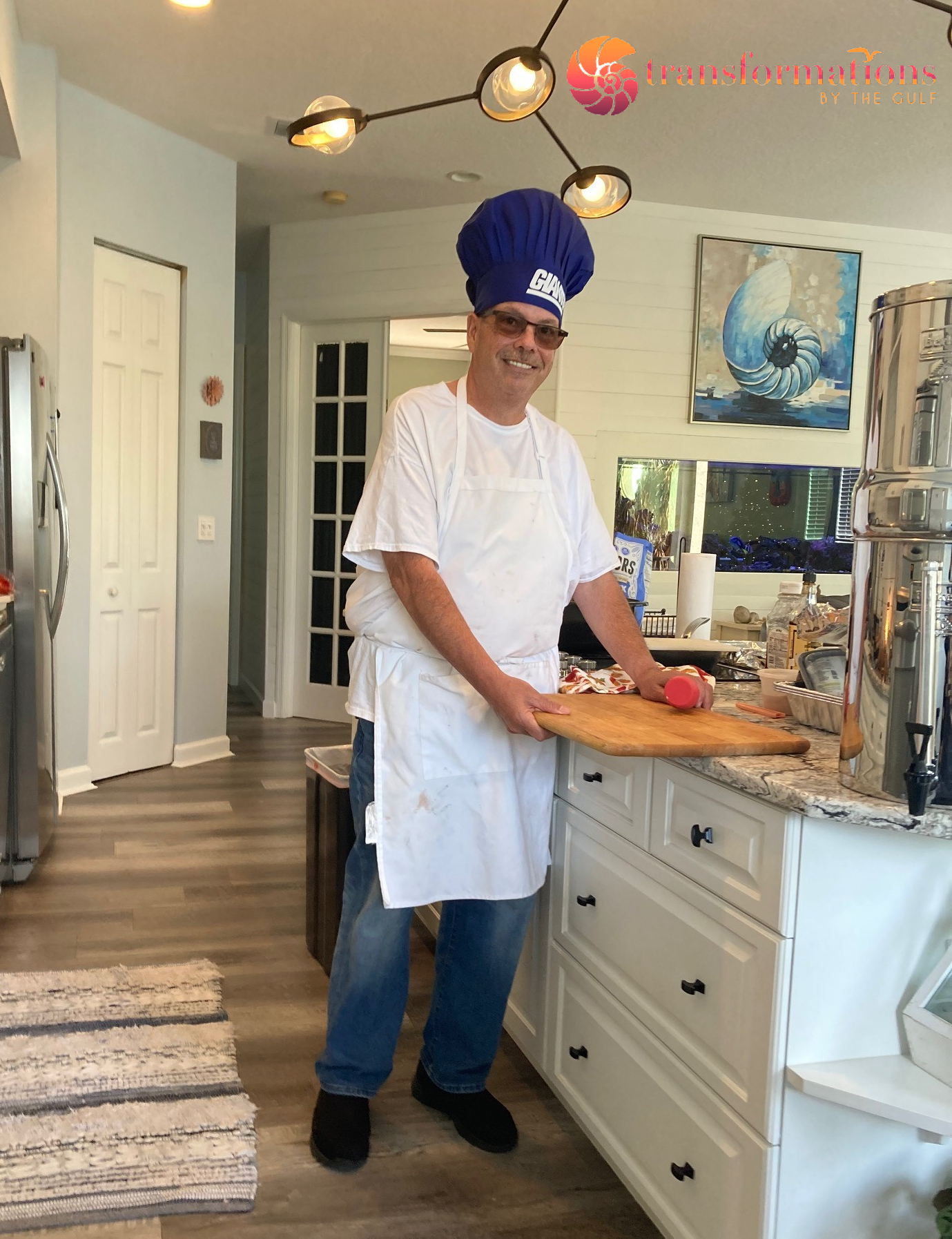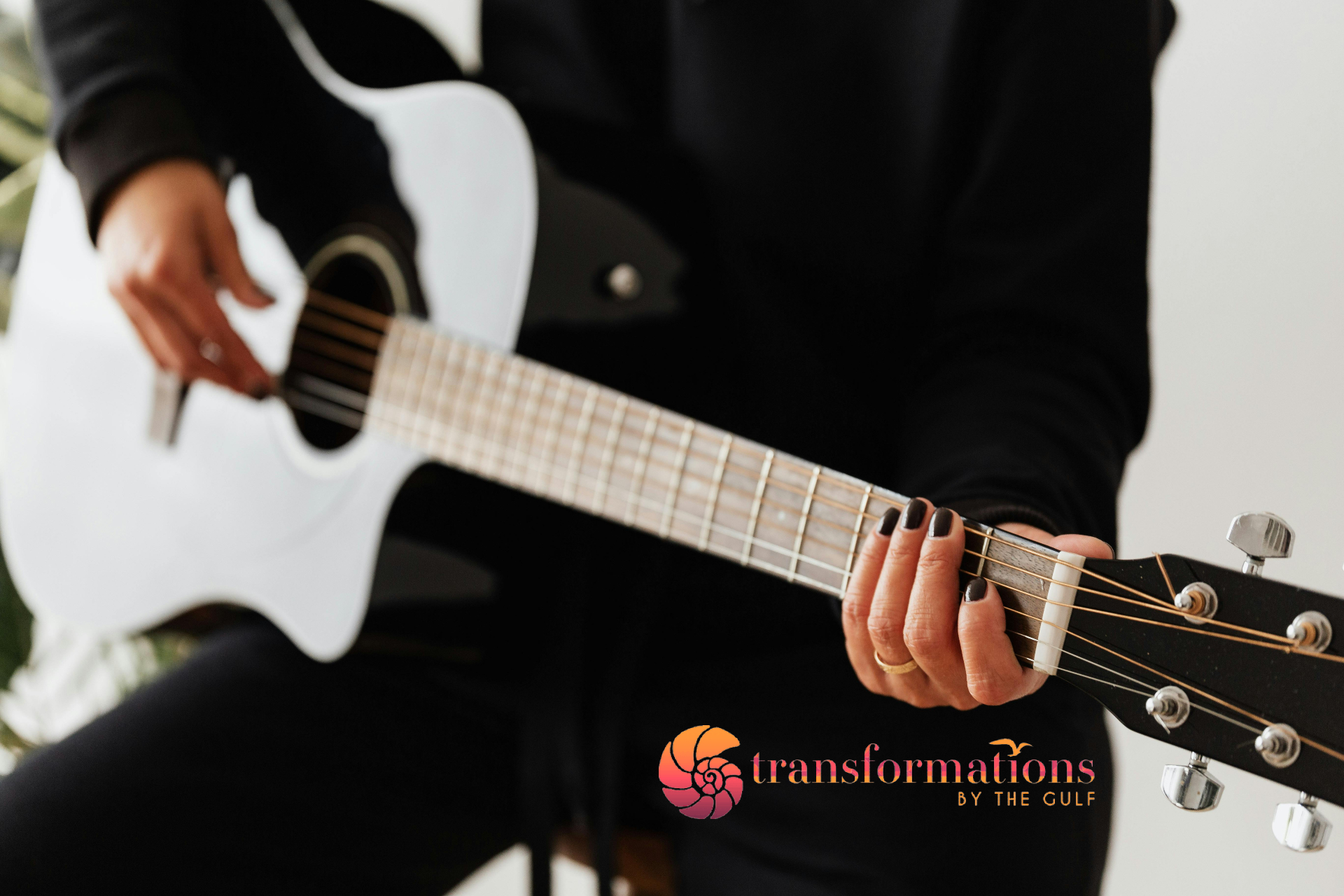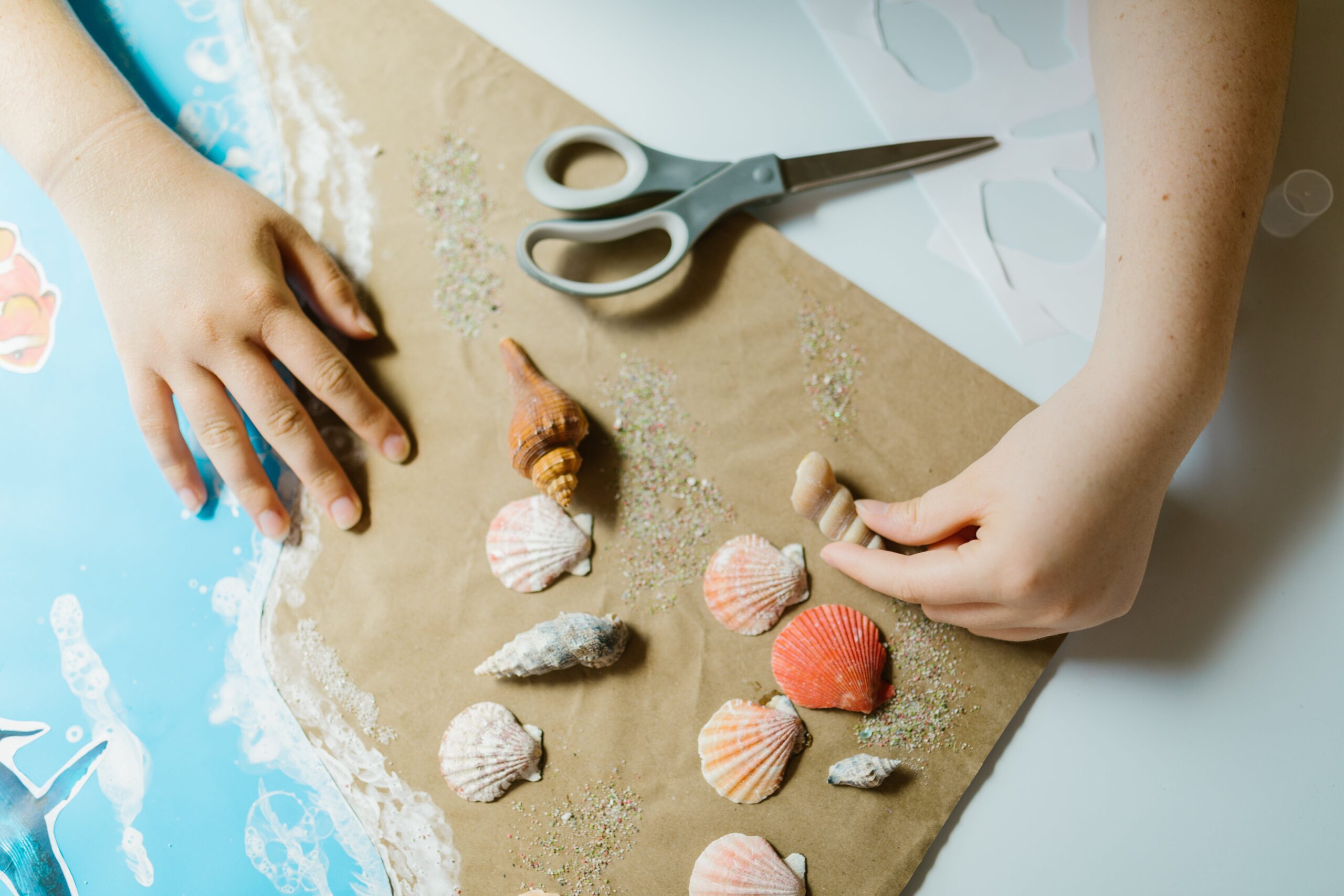5 Signs of Codependency
What is Codependency?
According to Psych Central, codependency is a relationship in which one partner has extreme emotion and physical needs and the other partner meets those needs most of the time. The person becomes so dependent upon that person to always meet those needs that they feel they can't function without the other individual. What can happen with Codependency is it can spiral out of control in which the codependent partner enables the loved one's challenges, making it easy for the loved one to maintain the destructive behaviors.
5 Signs of Codependency
Symptoms of codependency include:
- Low self-esteem: The codependent person may feel they are unlovable outside of the relationship role and depends on the opinions of other people to feel valued or self-worth.
- People-pleasing: The opinions of other people may have a great deal of weight for the codependent person. This person will do anything to make sure others have a positive opinion about them. The person may feel intense shame, guilt or an inability to say “no” to other people.
- Caretaking: The person feels a primary need to care for other people, often at the expense of themselves; in some extreme situations, the person doesn’t feel secure or comfortable unless needed.
- Unhealthy or absence of boundaries: The codependent person may not have a understanding or sense of boundaries, either for themself or others. These individuals may offer unwanted or unneeded advice, feel responsible for other people’s feelings, or want to control or manipulate others in order to feel safe and secure.
- Obsession over relationships: Because the codependent person feels completely defined by relationships, they may become the main priority or an obsessive focus for the individual.
If you or someone you know would like to know more about Transformations by the Gulf Substance Abuse Treatment Center Give us a Call 24/7 (727)498-6498
The success of a person’s recovery depends on the level of personalized treatment provided. It is important to find an addiction treatment program that works. When we say our treatment is individualized, we mean that we craft a program that is tailored to address the client’s unique physical, mental and emotional needs.
In the client’s first 24 hours with us, we’ll evaluate their current state and work to understand what challenges they need to overcome. They’ll also have an initial session with our doctor and meet with one of our licensed mental health professionals.
After the initial evaluations, we’ll design a treatment plan with the sole mission of helping the client overcome and heal from addiction. Their program will focus on things such as:
- Addressing and Identifying root causes of addiction.
- Creating a support system.
- Developing healthy stress management techniques.
- Eliminating Substance use.
- Learning how to communicate emotions effectively.
- Maintaining a healthier lifestyle.
- Repairing damaged relationships.
Our Facility is near the beach and offers a comfortable setting for substance abuse treatment and recovery.
What a Day is Like in Our Treatment Facility.
Why Transformations by the Gulf?
Creating a Sober Christmas in Florida
Creating a Sober Christmas in Florida
Creating a Sober Christmas in Florida; Is it possible to enjoy Christmas without Alcohol or Drugs?
Some people associate alcohol and drugs with the holidays as a way to have fun while others look to it as a way to cope with depression or loneliness during the holidays. Being connected to a recovery program during the holidays especially if you are new to recovery is very important. The holidays can bring up a range of emotions that are difficult to handle on your own. Often we feel a need to cope with these feelings, so we turn to what our mind perceive as the easy way to cope. Relapsing during the holidays can be common but does not have to be a part of your journey. The good news is that we can create new traditions that don’t involve intoxication. It is these new traditions that you will associate with Christmas in the future. This is how you reclaim your Christmas and holiday season. Creating a Sober Christmas in Florida check out these tips to create one.
- Go to some local holiday activities or shows.
- Volunteer your time to help those less fortunate.
- Go to a Christmas market and enjoy the atmosphere.
- Spend time with your family in a sober environment, so they can get you into the Christmas spirit.
- Go to a sober Christmas party (recovery groups in large cities will usually arrange these in December).
- Spend a bit of time in nature.
- Cook Christmas dinner and invite some friends around.
- Decorate your Christmas tree with some friends in recovery.
The holidays can be difficult but going into the holidays knowing you're not alone and staying connected can prevent relapse from occurring. Creating a Sober Christmas in Florida is possible.
If you or someone you know would like to know more about Transformations by the Gulf Substance Abuse Treatment Center Give us a Call 24/7 (727)498-6498
The success of a person’s recovery depends on the level of personalized treatment provided. It is important to find an addiction treatment program that works. When we say our treatment is individualized, we mean that we craft a program that is tailored to address the client’s unique physical, mental and emotional needs.
In the client’s first 24 hours with us, we’ll evaluate their current state and work to understand what challenges they need to overcome. They’ll also have an initial session with our doctor and meet with one of our licensed mental health professionals.
After the initial evaluations, we’ll design a treatment plan with the sole mission of helping the client overcome and heal from addiction. Their program will focus on things such as:
- Addressing and Identifying root causes of addiction.
- Creating a support system.
- Developing healthy stress management techniques.
- Eliminating Substance use.
- Learning how to communicate emotions effectively.
- Maintaining a healthier lifestyle.
- Repairing damaged relationships.
Our Facility is near the beach and offers a comfortable setting for substance abuse treatment and recovery.
What a Day is Like in Our Treatment Facility.
Why Transformations by the Gulf?
Staying Connected in Recovery
Staying Connected in Recovery
Staying Connected in Recovery is very important. The process of addiction can often lead to disconnecting from others. Some individuals would say that the opposite of addiction is sobriety, however, it is recovery. What is recovery? Recovery is a process of change through which people improve their health and wellness, live self-directed lives, and strive to reach their full potential. Even people with severe and chronic substance use disorders can, with help, overcome their illness and regain health and social function. A key component is social connection.
How to Stay Connected in Recovery
Whatever the origins of your addiction are, it is undeniable that having a supportive, caring community is instrumental in recovery. We simply need others around us who we can connect with and relate to. Some will be other recovery addicts or alcoholics, who have their background and have come into a community dedicated to healing. Others may be co-workers, friends, mentors, family members, or anyone we learn to trust and rely upon for companionship and community. It helps to share our experiences with others and to avoid old patterns and behaviors.
Attend Meetings and Work on a Program. It doesn’t have to be a 12-step program, although that’s a great place to start. There are a wide variety of recovery-based programs these days including AA, NA, Recovery Dharma, Smart Recovery and so many more. Find a program that works for you.
Find a Healthy Hobby. Joining a bridge club or a knitting circle taking riding lessons or learning tai chi will automatically throw you in with a group of like-minded people with whom you can form new and hopefully lasting connections.
Be of Service. It doesn’t have to be in the 12-step rooms, although that’s a great place to start. Serving others out of a genuine desire to be helpful will increase your sense of connectedness, no matter where in the community you decide to serve.
Transformations by the Gulf Addiction Treatment Develops Coping Skills and Shows You How to Use Them.
Transformations by the Gulf Addiction Treatment devotes its efforts to caring for and helping heal the whole person. Staying Connected in Recovery is possible with Transformations by the Gulf. It is through this pathway that real change can be made, and wellness restored. Learning and practicing coping skills for addiction recovery is a core treatment focus in our program. For more details about the program, please reach out to the team today at (727)-498-6498.
Cupping Therapy in Addiction Recovery
What is Cupping Therapy?
Cupping therapy is an ancient form of alternative medicine. A therapist will put special cups on your skin for a few minutes which creates a suction. The suction increases blood flow to the affected area. Cupping therapy is used for many purposes such as pain reduction, inflammation, blood flow, relaxation, well-being, and as a type of deep-tissue massage. It can ease back pain, neck pain, headaches and other areas. The cups are made from bamboo, glass, earthenware or silicone.
How Does Cupping Therapy Work?
As the air inside of the cup cools down, it creates a sort of vacuum. This causes your skin to get red and rise as your blood vessels expand. The cup is generally left in place for up to 3 minutes. Sometimes therapists use silicone cups, which they can move from place to place on your skin for a massage-like effect. There is also a form called wet cupping which creates a mild suction by leaving a cup in place for 3 minutes. You might get 3-5 cups in your first session.
Cupping Therapy in Addiction Recovery
Because cupping therapy can be utilized for so many different reasons it can have a huge impact on recovery all together. In some cases, people over medicate to decrease pain symptoms which over time can turn into addiction as the medication no longer gives the same effect. Using cupping therapy can help elevate some of the effects of chronic pain by reducing the levels. In other cases, if stress is the primary cause of addiction utilizing a substance as a coping mechanism cupping therapies massage like effect can help reduce stress over a period of time. Utilizing this ancient therapy as a way to combat addiction is becoming more and more common in modern day times as the benefits are vast.
Transformations by the Gulf Addiction Treatment Develops Coping Skills and Shows You How to Use Them.
Transformations by the Gulf Addiction Treatment devotes its efforts to caring for and helping heal the whole person. It is through this pathway that real change can be made, and wellness restored. Learning and practicing coping skills for addiction recovery is a core treatment focus in our program. For more detail about the program, please reach out to the team today at (727) 498-6498
Cooking in Recovery
For those in early recovery, finding new and interesting activities to take part in that does not involve alcohol or drugs can be difficult. It is important to incorporate one or more sober hobbies into your new lifestyle so you can help strengthen your recovery and improve your quality of life. Working on your cooking skills is an excellent way to add a fun and safe hobby into your daily routine while also developing an important life skill. Here are some of the biggest benefits of sober cooking.
Sober Cooking is Good for Your Physical Health
When in active addiction, people tend to neglect their health and wellbeing. This can manifest as poor eating habits, whether it’s eating too much, not eating enough, or choosing processed foods over nutritious foods. One of the best ways to boost your physical health and wellbeing in recovery is to be mindful of what you put in your body. Studies have shown that people who cooked meals for themselves tend to eat more fruits and vegetables and have lower body fat percentages versus those who tend to eat out. In addition to knowing every ingredient that’s going into your food, sober cooking is also a great way to save a little money while improving food quality.
Sober Cooking is Good for Your Mental Health
Poor eating habits can impact your mental health, which is just as important to maintain as your physical health when it comes to preventing relapse. Researchers have found that consuming large amounts of sugar, junk food, processed meats can increase a person’s risk of depression and/or anxiety. When you prepare meals for yourself, it’s much easier to avoid these highly processed pitfalls and incorporate nutritious items like fruits, veggies, whole grains, nuts, and lean meats into your diet.
Sober Cooking Is Good for Your Brain
People in early recovery can often experience post-acute withdrawal syndrome (PAWS), which can cause temporary cognitive impairments such as loss of memory, concentration problems, and brain fog. Sober cooking is an excellent activity for whipping your brain back in shape, as it involves practices several key cognitive skills affected by PAWS. Gathering and preparing ingredients, following a recipe, and working with different types of cooking equipment requires you to sharpen your attention span and improve your concentration. The more you cook, the more exercise you’ll give to your recovering cognition. You can start by making simple dishes for yourself, then work up to more complex meals for friends and family.
Sober Cooking is Good for Socialization
Sober cooking can also help keep you connected with fellowship, friends, and family, which is important in recovery. Making meals with other people can be a positive bonding experience, as it requires working with others to create something delicious you can enjoy together. It’s also an excellent way to get started cooking in recovery as a beginner — you can start off with simple tasks such as cutting veggies or measuring ingredients and learn important tips and tricks from others.
Cooking In Recovery
Recovery is a lifelong important process. While there are many different strategies one can use to stay clean and sober, finding activities that you enjoy and can do with friends is one of the best ways to stay sober. Cooking is one activity that can benefit your health, recovery, and social relationships.
Transformations by the Gulf Addiction Treatment Develops Coping Skills and Shows You How to Use Them.
Transformations by the Gulf Addiction Treatment devotes its efforts to caring for and helping heal the whole person. It is through this pathway that real change can be made, and wellness restored. Learning and practicing coping skills for addiction recovery is a core treatment focus in our program. For more detail about the program, please reach out to the team today at (727)-498-6498.
Florida addiction recovery with music
Florida addiction recovery with music
Music therapy draws on the power of music in a therapeutic relationship to manage a range of conditions and improve your quality of life. A music therapist tailors sessions to your needs. You may sing or play instruments, listen to music or discuss the meaning of lyrics. You don’t need musical skills, and people of all ages can benefit.
Overview
What is Florida Music Therapy?
Music therapy is the use of music and/or elements of music (such as sound, harmony, and rhythm) to reduce stress or improve quality of life. A healthcare provider called a music therapist talks to you to learn more about your needs, music preferences and experiences, and designs each session specifically for you. They also evaluate your progress each step of the way and may work with your other healthcare providers to coordinate your care.
Music therapy experiences may include singing, playing instruments, writing music or simply listening. Some sessions may involve listening to music and talking about its meaning to you.
Healthcare providers use music as therapy in many different contexts. Music can certainly be a powerful tool for calming and healing. But the definition of clinical musical therapy states that a qualified music therapist must plan and lead the session in a therapeutic manor for it to qualify as this form of treatment.
Music therapy helps people of all ages and from all walks of life. It may benefit many different aspects of your overall well-being, including.
- Cognitive
- Emotional
- Mental
- Physical
- Social
What conditions can music therapy manage?
According to the Clevland Clinic Music therapists use this form of treatment to manage a vast range of conditions. It’s typically a complementary therapy. This means it’s part of a larger treatment plan that may include medications or other interventions. Research shows music therapy can offer benefits to people with:
- Dementia
- Traumatic brain injuries
- Stroke
- Parkinson’s disease
- Cancer
- Autism spectrum disorder
- Mood disorders
- Anxiety disorders
- Learning disabilities
- Developmental disabilities
- Pain (acute and chronic)
- Substance use disorders
Reach Out for More Information About Transformations by the Gulf
Our addiction treatment services include a variety of programs, designed to follow guests through the recovery process.
We offer residential treatment programs including residential inpatient program. Transformations by the Gulf treatment center also offers: a partial hospitalization program (PHP), an intensive outpatient program (IOP), an intensive outpatient program with community housing.
If you have any questions about our treatment options, please reach out to one of our addiction specialists at (727)498-6498 our team is available to speak with you 24/7. Because We Care.
Music Healing in Recovery at Transformations by the Gulf
Music Healing in Recovery at Transformations by the Gulf
Music is a beautiful and powerful thing; it has the ability to transform or enhance your mood. At Transformation by the Gulf, we encourage music as it provides a vital role in recovery and addiction treatment.
Transformations by the Gulf takes a holistic approach, treating the mind, body, and soul. We believe in the power of music and encourage all avenues of healing. We use therapeutic activities to create healthy habits that are useful both in and outside of recovery.
Musical Healing in Recovery
Music Healing in Recovery at Transformations by the Gulf is powerful. Music provides a beautiful outlet to express yourself whether you just want to listen or sing and play along. In addition to being beneficial, music is a proven effective therapeutic method and provides benefits for recovery.
Music Improves Brain Function
Scientific research states the effect music can have on our brainwaves. Songs with fast tempos and strong beats stimulate the brain to improve concentration and alert thinking; slower songs bring peace and serenity. Listening to songs can improve the brain’s ability to shift the speed of thoughts on its own.
Music Reduces Pain
Listening to music can reduce stress and pain when used as a distress tolerance skill. It is also proven to be effective for people struggling with chronic pain. Musical sounds can have amazing physical effects on the body, like easing muscle tension and lowering blood pressure. More specifically, those with high blood pressure or anger issues can benefit greatly from listening to calming songs, as it lowers blood pressure and encourages the activation of “the relaxation response.”
Motivation and Positivity
Music can be an excellent way to motivate yourself. Especially by listening to fast-paced songs can provide the motivation you need to get up and move or help you focus. Slow songs calm the mind and benefit guided meditation exercises.
Knowing that musical sounds can affect your mindset, it’s easy to see how songs can be used to change your mood into a positive state of mind. Uplifting songs, and lyrics that resonate, can actually make a massive shift in mood and your level of happiness or stress.
Triggers Positive Memories
When we hear a certain song play, memories can flood our minds. This is because many of us have songs that bring a feeling of nostalgia. As a result, music can help aid in remembering positive memories. For instance, most people can agree that listening to a favorite song can transport them into a positive mindset.
Music Relieves Stress
Music can help manage and treat mental health, in addition to other therapies and medication when necessary. In fact, relaxing sounds can actually have an effect on the autonomic nervous system, causing changes in heart rate and breathing. These changes can actually bring someone into a meditative state just by listening to calming sounds. For this reason, listening to soothing sounds can reduce stress, allowing guests who suffer from anxiety or depression to feel comfortable and find relief.
Self-Expression
Music can be used as a tool of self-expression. Expressing yourself is extremely beneficial in addiction recovery from substance use disorders or alcohol addiction. Any healthy outlet for expressing yourself is something that we support at Transformations Treatment Center.
In fact, creating music can be a very expressive and rewarding activity, especially for those in recovery who are undergoing inpatient treatment, group therapies, and behavioral therapies. The therapy causes emotions to come up, which may be hard for alcoholics or addicts to process or express. Making songs is a great way for our guests to express their raw emotions, giving them a healthy way to channel their thoughts and feelings. By incorporating musical techniques into addiction treatment, we provide our guests with opportunities for authentic self-expression.
Music Encourages Physical Movement
Music can be used in combination with a variety of physical wellness therapies, like movement therapy, adventure therapy, and activity therapy. This is because musical sounds can encourage physical movement and motion, to promote physical health. Our treatment programs are able to incorporate music with many therapeutic activities.
Reach Out for More Information About Transformations by the Gulf
Our addiction treatment services include a variety of programs, designed to follow guests through the recovery process.
We offer residential treatment programs including residential inpatient program. Transformations by the Gulf treatment center also offers: a partial hospitalization program (PHP), an intensive outpatient program (IOP), an intensive outpatient program with community housing.
If you have any questions about our treatment options, please reach out to one of our addiction specialists at (727)498-6498 our team is available to speak with you 24/7. Because We Care.
Adapting Coping Skills in Recovery
Adapting Coping Skills in Recovery
When you begin the road to living cleaning and sober you need to consider the mind, body and soul. This simply means to think about how all aspects of your being are functioning at any given point in time.
When these three points are healthy, you will have a better chance of staying clean and sober. Use these coping mechanisms to help you achieve this sobriety:
Focus on Controlling Stress
Learning how to manage stress is a vital part of recovery. Stress has the power to disrupt your cause of friction and lead to relapse. Adapting Coping Skills in Recovery is important. There are many methods people can use to help control stress. These include:
- Deep breathing. Learning how to slow your heart rate and breathing rate through deep breathing is easy. When you feel stressed, breathe in deeply to a count of 5, hold your breath for 5, and release to a count of 5. Repeat 5 times.
- Yoga. Yoga’s poses and movements, combined with breath work, help to quiet your mind and achieve a calm state.
- Meditation. Find a quiet time to sit alone quietly and meditate. Practice this process daily and soon you will learn how to ease distracting thoughts and worries.
- Massage. A massage can help release the toxins in your muscles and relax the body.
- Music. Music has great power to affect your state of mind. Create a playlist of songs that can relax you, uplift you, or motivate you. Let these songs play while you work, clean, cook or relax.
Take up Healthy Habits.
Turn boredom into being productive by taking up some healthy new hobbies that bring you joy. Consider these:
- Arts and crafts. Tap into your artsy side as an outlet for your soul. Take up a new craft, like 3d printing, painting, or building models.
- Gardening. The process of planting and growing fruits or vegetables can be very fulfilling and rewarding.
- Photography. Capture the stunning beauty that is all around you. Taking photos is a great pastime that allows you to focus your mind on all that is pleasant in your surroundings and in nature. See the world through the lens of your camera.
- Cooking. Sign up for a cooking class or tune in to an online cooking show. You will be inspired to try new recipes.
Take time to reflect.
Carve out a little time each day to nurture your spiritual side. You might pick up a book that inspires you. Maybe you spend some time in prayer or start a gratitude journal.
Cultivate new friendships.
Without each other, we will fail in our efforts to get better. Our support sources include friendships, and these must be nurtured always. Build up your new sober network and sow the seeds for a lifetime of mutual caring and support.
Go to therapy.
Do not, repeat-not, ignore the need to keep up with your therapy sessions. Sometimes no matter all your efforts you still find yourself on shaky ground. Enlist the support of your group or one-on-one therapy sessions to help you through a challenge.
Stay active.
Sitting is one of the least healthy things we can do. To keep our bodies, minds, and spirits in a healthy place it is crucial that we remain active. Define your fitness program any way you want, but just be sure to include regular movement into your days and weeks.
Learn to distract yourself.
One of the most useful tools in recovery is riding the wave of a trigger or craving to avoid a relapse. This is a skill that takes some honing. Create a list of 2 or 3 things you can do to distract yourself when triggered. These can be things like taking a run, going to a meeting, or meeting up with your sponsor.
Improve sleep quality.
Nothing will ruin your day like a bad night’s sleep. Respect your body’s need for restful sleep and do the things that will help you achieve that. These include avoiding caffeine after 3 pm, avoiding heavy meals at night, and shutting your devices off an hour before bed.
Staying sober is about creating healthy balance. By giving all aspects of your being the needed love and support you increase your chances of recovery success.
Transformations by the Gulf Addiction Treatment Develops Coping Skills and Shows You How to Use Them.
Transformations by the Gulf Addiction Treatment devotes its efforts to caring for and helping heal the whole person. It is through this pathway that real change can be made, and wellness restored. Learning and practicing coping skills for addiction recovery is a core treatment focus in our program. For more detail about the program, please reach out to the team today at (727)-498-6498
How to stay sober during the holidays
Some of the greatest joy has come from staying clean and sober. It is important to protect your sobriety or clean time. It's important remember that relapse can happen, but it doesn't have to happen. The holiday season brings a lot of excitement and emotions. It's important to be aware of those emotions and to not act on impulse.
If you are new to being clean and sober, we are proud of you and want to offer you some hope. Feel confident that the best years of your life lie ahead of you. The 12-step programs (Alcoholics Anonymous, Narcotics Anonymous) offer many promises. Life will take on a new meaning, and you will know happiness like you have never known before.
You may want to know...
What are some tips for staying clean and sober during the holidays?
Why stay clean and sober? Everyone else is having a good time with alcohol and party drugs why can't you?
What can I do to protect myself from relapse?
How do I remain clean and sober?
To help support your sobriety over the next few months, we feel it’s important to share with you our “How to stay sober during the holidays”.
Use these strategic tips to support your sobriety over the next few months:
- Plan Ahead. Always take your own vehicle to holiday parties so YOU can control your destiny. Also, take a sober companion with you for support and pay close attention to relapse triggers: H.A.L.T: Hungry. Angry. Lonely. Tired. Arrive early and leave early.
- Make Self Care a Priority. Celebrate the holiday season by taking care of your body, mind, and soul. We cannot be our very best if we are depleted. Give yourself the gift of time for yourself: a meeting, a prayer, continue working your program of recovery, a massage, a meditation or even some yoga. Proper nutrition and plenty of healthy physical movement will make you feel stronger, both physically and emotionally. Make plans for some time to reflect after a long day.
- Increase Support. We can get overwhelmed with the erratic nature of the season, so as you plan each day in November and December, start with 12-step support as your first priority. This could mean bookending a holiday event with phone calls to someone in recovery before and after the event. Commit to attend a 12-step meeting (or two) each day and inviting a friend to attend with you. Also, if you’re traveling to another city, plan ahead and make sure you attend meetings there as well or pick up a phone meeting.
- Be mindful of time spent around your relatives – know your limits. We all have our own version of crazy Aunt Mildred who is going to criticize your career choice and make you feel “less than” or Uncle Harry who will insist on you are having his famous holiday drink. And even worse, we most likely have strained family relationships that have been simmering for years. This type of stress can lead us to rationalize and convince ourselves we are entitled to a drink. Instead, surround yourself with supportive loved ones that will help you follow the steps to staying clean and sober.
- Have your props ready. When you arrive at a party, immediately get a non-alcoholic beverage and keep it in your hand. Whether it’s sparkling water or soda, others won’t be inclined to push drinks on you constantly. And, the truth of the matter is, people never really notice or pay attention to what’s in your glass.
- Celebrate relationships. As you consider holiday occasions, think about them as a way to make new friendships and perhaps rekindle old relationships with friends. Instead of making the event about drinking and eating as a priority, intentionally make it about “people” and building relationships; go into each party looking forward to establishing real connections.
- Eat well. The holidays don’t give us a green light to overindulge. There’s nothing worse that stuffing ourselves with too much sugar, carbs, and fat-laden foods that make us feel bad. So be proactive and choose healthy foods that will make you want to celebrate, not feel guilty.
- Service, not self. When we can focus on others, we find more joy and gratitude. So look for ways to think about and serve others. Make a special family recipe and deliver to friends. Donate your time at a homeless shelter, food pantry, or soup kitchen. Spend time with a neighbor who is confined. These spiritual opportunities allow us to spread happiness and cheer to others. Treat it as one of the benefits of staying clean and sober; being able to have a clear mind and body to help others.
- Create new traditions. Celebrate the fact you are reestablishing your own life. As you affirm your new self on these festive days, you are choosing to celebrate the new, better, clean and sober life that you have created. This might mean hosting a sober, festive gathering with friends in recovery. It may mean volunteering to serve at local 12-Step support groups. Remember, giving is one of the best things you can do during the holidays.
- Avoid relapse triggers. Of all triggers, the most significant can be emotional triggers. No matter if you are in recovery or not, the holiday season is one of the most stressful times of the year. With so many activities squeezed into one month, our normal routines get disrupted, and people get frustrated and anxious. Also, there’s increased demands from your spouse, partner or other family members, and this can put serious stress on your sobriety. This can lead to feelings of shame, guilt, humiliation, embarrassment, anger and depression. The holidays don’t have to be “perfect” and just like previous years. Saying yes when you should say no can leave you feeling resentful and overwhelmed. Saying “no” is perfectly acceptable and it will protect you.
- Make sobriety your top priority. If you think about it, all holiday parties are optional. If you don’t think the activity is going to be good for your recovery, it’s okay not to go. You can politely decline the party invite, especially if it's one that is going to jeopardize your recovery.
- Maintain your spirituality. Our commercial world wants us to believe that joy can come from Alcohol and shopping. It creates a false ideal that happiness can be found in these. Instead, focus on the true spirit of the season. Regardless of your faith or spiritual beliefs, the holidays are really about two things: giving and gratitude. When we focus on these, the other things such as resentment, disappointment, anger, worry, self-loathing show up far less often and cannot find a foothold in our hearts.
Staying clean and sober is possible during the holiday season. It can be quite fun if we direct our attention towards people and activities that can help strengthen us on our road to recovery. Go, have fun, and enjoy your sobriety with those that matter: your loved ones.
If you or someone you know would like to know more about Transformations by the Gulf Substance Abuse Treatment Center Give us a Call 24/7 (727)498-6498
The success of a person’s recovery depends on the level of personalized treatment provided. It is important to find an addiction treatment program that works. When we say our treatment is individualized, we mean that we craft a program that is tailored to address the client’s unique physical, mental and emotional needs.
In the client’s first 24 hours with us, we’ll evaluate their current state and work to understand what challenges they need to overcome. They’ll also have an initial session with our doctor and meet with one of our licensed mental health professionals.
After the initial evaluations, we’ll design a treatment plan with the sole mission of helping the client overcome and heal from addiction. Their program will focus on things such as:
- Addressing and Identifying root causes of addiction.
- Creating a support system.
- Developing healthy stress management techniques.
- Eliminating Substance use.
- Learning how to communicate emotions effectively.
- Maintaining a healthier lifestyle.
- Repairing damaged relationships.
Our Facility is near the beach and offers a comfortable setting for substance abuse treatment and recovery.
What a Day is Like in Our Treatment Facility.
Why Transformations by the Gulf?
Recognizing Relapse Warning Signs
Recognizing Relapse Warning Signs
Just as an individual’s specific addiction relapse triggers are unique to them and their experiences, warning signs that your loved one has relapsed depend on a number of unique personal factors. However, noting one or more of the following common warning signs can be a strong indicator that a stage of relapse has occurred or is imminent:
- Dishonesty. Little white lies are one thing, but if your loved one seems to continually be lying to you about things like whether or not they went to therapy, where they are spending all their time (or money), or why they never seem to come to the weekly family dinner anymore, this can be a sign that they are trying to hide a relapse.
- Overconfidence. While it’s important for your loved one to feel confident in their own ability to recover from addiction, overconfidence can be dangerous and a common sign of relapse. This supposed period of improvement could be them trying to overcompensate for something. If they start talking about quitting treatment or giving up on certain parts of their aftercare plan because they “just feel better” or don’t feel like they need to anymore, this can indicate that they are no longer actively pursuing their long-term recovery goals and may be at risk for relapse.
- Neglecting personal hygiene. Poor self-care practices, such as forgetting to wash their hair, refusing to take a shower, not brushing their teeth, or wearing the same clothes for days is nearly always a sign that something is wrong and that they are potentially in the middle of a mental relapse—if not relapse, then perhaps some other negative experience that may trigger a relapse.
- Reviving old (negative) connections. If your loved one is spending time with the people they used to use with or hanging out in the same places in which they used to use, this can be a strong indicator that they are in a stage of relapse, or the mental relapse has already occurred—especially if they try to hide that they are spending their time thus.
- Self-imposed isolation. Social withdrawal from positive relationships and neglecting or avoiding social connections, in general, isn’t merely a relapse warning sign—it can also occur as a result of the guilt and shame your loved one may feel if they’ve already had an emotional relapse.
- Significant change in attitude. Bad days are a natural part of the process of recovery. But if your loved one seems to be experiencing distinct stages of negative feelings, like feelings of anxiety or sadness, and other possible signs of decreasing mental health, over an extended period of time, they may be at risk for a relapse. Similarly, mood swings, increased irritability, and other sudden marked changes in attitude can indicate either a risk of relapse or that they’ve already been in the throes of mental relapse. Even strong positive feelings, if it’s extreme or seems to come out of the blue, can be a sign that they are experiencing the highs of using again. It’s important to keep an eye on their emotional health, alongside their mental and physical health, as any changes to them can be indicative of something bigger going on.
- Significant change in behavior. If your loved one starts repeatedly skipping school, “forgetting” appointments, acting out, or simply acting contrarily to their usual character, a significant change in behavior is often one of the most pronounced warning signs of relapse. This is especially true if there is a marked change in eating or sleeping habits.
The best way to recognize a potential sign of relapse is to listen to your sober support system and loved ones. It's all too easy to write off red flags as something temporary or innocuous, but ignoring a potential relapse will only make recovery harder in the long run. If it feels like something is wrong, then something probably is wrong.
Don't panic if the warning signs above sound all familiar. Even if your loved one is already on the cusp of relapse, there is still hope for recovery, both in the short and long term.
If you or someone you know would like to know more about Transformations by the Gulf Substance Abuse Treatment Center Give us a Call 24/7 (727)498-6498
The success of a person’s recovery depends on the level of personalized treatment provided. It is important to find an addiction treatment program that works. When we say our treatment is individualized, we mean that we craft a program that is tailored to address the client’s unique physical, mental and emotional needs.
In the client’s first 24 hours with us, we’ll evaluate their current state and work to understand what challenges they need to overcome. They’ll also have an initial session with our doctor and meet with one of our licensed mental health professionals.
After the initial evaluations, we’ll design a treatment plan with the sole mission of helping the client overcome and heal from addiction. Their program will focus on things such as:
- Addressing and Identifying root causes of addiction.
- Creating a support system.
- Developing healthy stress management techniques.
- Eliminating Substance use.
- Learning how to communicate emotions effectively.
- Maintaining a healthier lifestyle.
- Repairing damaged relationships.
Our Facility is near the beach and offers a comfortable setting for substance abuse treatment and recovery.
What a Day is Like in Our Treatment Facility.
Why Transformations by the Gulf?









